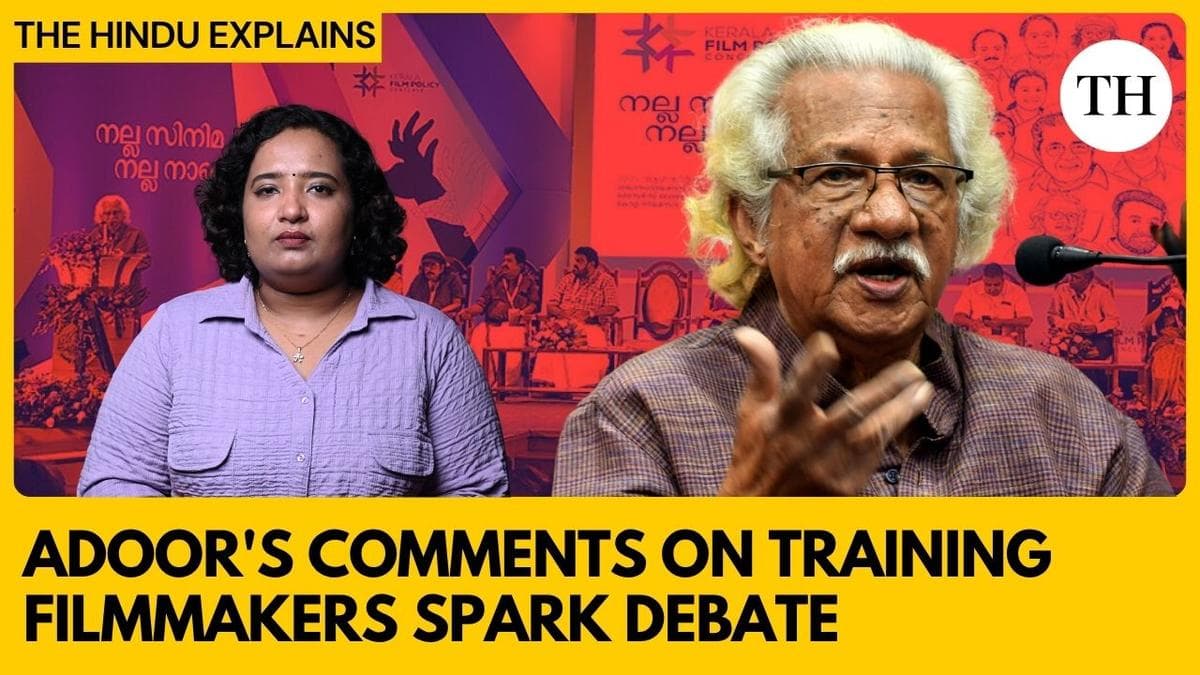Veteran Filmmaker Adoor Gopalakrishnan Sparks Row Over ₹1.5 Crore Government Film Grants

Thiruvananthapuram, Kerala – Celebrated filmmaker Adoor Gopalakrishnan has ignited a significant controversy with his recent remarks questioning the Kerala government's ₹1.5 crore financial assistance scheme for filmmakers from Scheduled Caste/Scheduled Tribe (SC/ST) communities and women. Speaking at the Kerala Film Policy Conclave, Gopalakrishnan suggested the current funding model could lead to corruption and advocated for mandatory training and reduced grant amounts.
Gopalakrishnan expressed concerns that the ₹1.5 crore grant, provided by the Kerala State Film Development Corporation (KSFDC), was excessive and lacked proper oversight, stating, "The government is providing ₹1.5 crore for filmmakers from the SC/ST communities to make films. I told the Chief Minister that the government is paving the way for corruption through this." He proposed reducing the amount to ₹50 lakh per project and emphasized the need for intensive training, adding, "just because one is a woman, the government should not be giving money to make films." This sentiment aligns with broader criticisms, as noted by social media user Rishi, who tweeted, "Government should not be handing out checks to film makers from tax payer's kitty, Dalit or not."
Cultural Affairs Minister Saji Cherian strongly refuted Gopalakrishnan's assertions, highlighting the scheme's crucial role in addressing historical disparities. Minister Cherian stated that "even ₹1.5 crore is insufficient to make quality films these days," and underscored that the project has enabled SC/ST and women filmmakers to gain mainstream opportunities after nearly a century of exclusion in Malayalam cinema. Higher Education Minister R. Bindu also voiced support for the government's initiative, emphasizing the responsibility of democratic institutions to ensure justice for marginalized communities.
Gopalakrishnan's comments drew immediate backlash from the audience at the conclave, including singer Pushpavathy, and led to a formal complaint. Dalit activist Dinu Veyil filed a complaint under the SC/ST (Prevention of Atrocities) Act, accusing the filmmaker of promoting ill-will against the community. Despite the widespread criticism, Gopalakrishnan has maintained that his intentions were not to insult but to ensure the "upliftment" and technical proficiency of emerging filmmakers, claiming his remarks were misinterpreted.
The controversy also resurfaced discussions about Gopalakrishnan's past contentious statements, including his views on the International Film Festival of Kerala (IFFK) delegate fees and his stance during protests at the K.R. Narayanan National Institute of Visual Science and Arts. Meanwhile, films produced under the KSFDC scheme, such as 'Nishiddho,' 'B 32 Muthal 44 Vare,' and 'Victoria,' have garnered critical acclaim, demonstrating the potential of the government's inclusive funding approach.